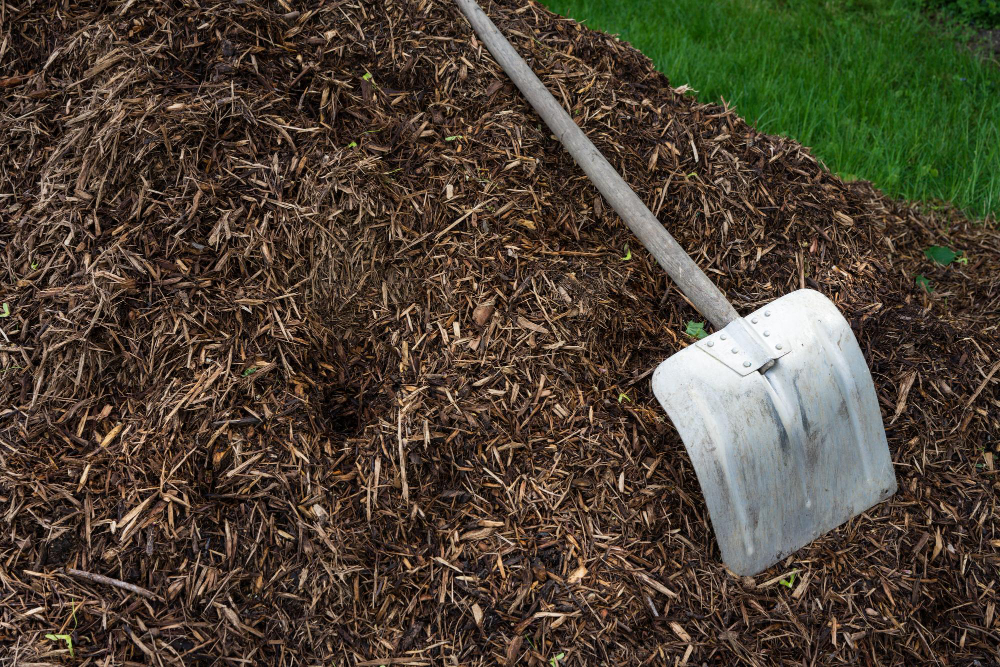Mulching Mistakes That Could Ruin Your Commercial Landscape

Your commercial property's landscape makes a powerful first impression on clients, customers, and employees. While mulching seems straightforward, common mistakes can turn this beneficial practice into a costly problem that damages your investment and hurts your business image.
Professional commercial landscaping requires attention to detail that goes far beyond spreading mulch around trees and shrubs. The wrong approach can kill plants, create pest problems, and leave your Orlando, FL property looking unprofessional. Understanding proper mulching techniques protects your landscape investment while enhancing your property's curb appeal.
The Critical Dos of Commercial Mulching
Choose the Right Mulch Type for Your Property
Selecting appropriate mulch materials directly impacts your landscape's health and appearance. Organic mulches like shredded hardwood, pine bark, and wood chips decompose naturally, enriching soil while retaining moisture. These options work well for most commercial properties in Orlando's climate.
Inorganic mulches such as rubber, gravel, or stone offer longevity but don't improve soil quality. Consider your maintenance budget and aesthetic goals when making this decision. High-traffic commercial areas often benefit from more durable inorganic options, while planted beds around office buildings thrive with organic materials.
Apply the Proper Depth
Commercial landscaping requires consistent mulch depth across all planted areas. Apply 2-4 inches of mulch around trees, shrubs, and flower beds. This depth suppresses weeds effectively while allowing water and air to reach plant roots.
Measure mulch depth regularly, especially after storms or high winds common in Orlando, FL. Thin areas allow weeds to establish, while excessive depth can suffocate plants and create water runoff issues.
Create Proper Mulch Rings
Extend mulch rings to the tree's drip line when possible. This practice protects root systems from mower damage and reduces competition from grass. For commercial properties with limited space, maintain at least a 3-foot diameter mulch ring around each tree.
Shape mulch beds with clean, defined edges using a spade or edging tool. Professional-looking borders enhance your property's appearance and prevent mulch from spreading into walkways or parking areas.
Time Your Mulch Application Correctly
Apply fresh mulch in late spring after soil temperatures warm but before summer heat peaks. This timing maximizes moisture retention during Orlando's hot season while giving plants time to establish before winter.
Remove old mulch if it has decomposed significantly or developed fungal problems. Fresh mulch applied over degraded material can create drainage issues and harbor pests.
Dangerous Don'ts That Damage Commercial Properties
Never Create Mulch Volcanoes
Piling mulch against tree trunks creates "mulch volcanoes" that kill trees slowly. This common mistake traps moisture against bark, encouraging rot and insect damage. Keep mulch 6 inches away from tree trunks and building foundations.
Mulch volcanoes also hide the tree's root flare, which should remain visible for proper tree health. Commercial properties with dead or declining trees face expensive removal costs and potential liability issues.
Don't Use Fresh Wood Chips Without Consideration
Fresh wood chips can tie up nitrogen in soil as they decompose, starving plants of this essential nutrient. If using fresh chips, apply nitrogen fertilizer to compensate for this temporary deficiency.
Avoid wood chips from unknown sources, especially those containing diseased tree material. Contaminated mulch can introduce plant diseases to your commercial landscape, requiring costly treatment or plant replacement.
Avoid Mixing Mulch Types Carelessly
Different mulch materials decompose at varying rates and create different soil conditions. Mixing types randomly can create uneven growing conditions and an unprofessional appearance.
If transitioning between mulch types, remove old material first or create distinct zones with clear boundaries. This approach maintains the polished look essential for commercial landscaping in Orlando, FL.
Don't Ignore Drainage Considerations
Thick mulch layers on slopes can shift during heavy rains, exposing soil and creating erosion problems. Use lighter applications on inclines or consider erosion-control mulches designed for steep areas.
Ensure mulch doesn't block drainage systems or create water dams around buildings. Poor drainage damages landscapes and can cause expensive property damage.
Maintenance Practices for Long-Term Success
Regular mulch maintenance keeps commercial properties looking professional year-round. Rake mulch monthly to prevent compaction and maintain its appearance. Address thin spots immediately to prevent weed establishment.
Monitor mulch depth seasonally and refresh as needed. Most organic mulches require annual addition or replacement, while inorganic options need periodic cleaning and rearrangement.
Keep detailed records of mulch applications, including dates, materials used, and areas covered. This documentation helps track maintenance needs and budget for future applications.
Signs Your Mulching Strategy Needs Professional Help
Watch for warning signs that indicate mulching problems requiring professional attention. Yellow or declining plants, excessive weed growth, or persistent fungal issues often stem from improper mulching practices.
Uneven mulch coverage, poorly defined bed edges, or mulch washing away during storms signals the need for professional commercial landscaping expertise. These issues affect your property's appearance and can indicate underlying drainage or design problems.
Pest problems, including termites or fungal gnats, sometimes trace back to mulch issues. Professional landscapers can identify problem sources and recommend solutions that protect both plants and buildings.
Professional Results for Your Commercial Property
Proper mulching transforms commercial landscapes from maintenance burdens into valuable business assets. Well-mulched properties require less water, fertilizer, and weed control while presenting a professional image that attracts customers and tenants.
Consider the long-term costs of DIY mistakes versus professional installation and maintenance. Dead plants, erosion damage, and pest problems often cost more than hiring experienced commercial landscaping professionals from the start.
If you need professional commercial landscaping in Orlando, FL, contact Plant This today to schedule a consultation. Our experienced team understands the unique challenges of maintaining commercial properties in Florida's climate and can develop a mulching strategy that protects your investment while enhancing your business image.